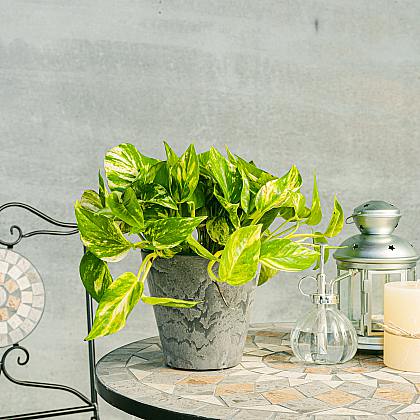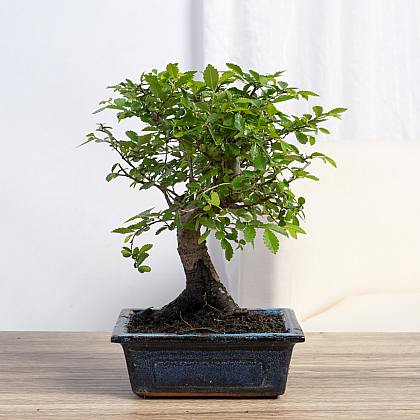Worm Castings: The Secret to Thriving Gardens
As an avid gardener, I've always searched for ways to improve my plants' health. That's when I discovered the game-changing secret: worm castings.

As an avid gardener, I've always searched for ways to improve my plants' health. That's when I discovered the game-changing secret: worm castings.
These tiny pellets, produced by hardworking earthworms, are packed with essential nutrients that plants need to thrive. They boost root health, improve soil texture, and even act as a filter against toxins. Plus, they retain moisture, making them perfect for water-starved regions.
Best of all, worm castings are eco-friendly and safe. Join me as we uncover the secrets of worm castings and unlock the full potential of our gardens.
Nutrient Density and Soil Enrichment
Worm castings provide rich nutrients to the soil, enhancing its fertility and promoting the growth of healthy plants. This is especially beneficial for organic farming, as it eliminates the need for synthetic fertilizers and promotes sustainable agricultural practices. The nutrient density of worm castings is impressive, and only a small amount is needed to enrich the soil and improve crop yield.
The organic matter in worm castings increases through microbial activity, which further enhances the soil's nutrient content. Additionally, worm castings aerate the soil, providing oxygen to the roots and improving its overall texture. This is crucial for root health and results in strong and resilient plants.
Soil Aeration and Texture Improvement
As a gardener, I've witnessed firsthand the remarkable benefits of worm castings in improving soil aeration and texture. Here are five ways worm castings can enhance soil structure and enhance root development:
- Worm castings aerate the soil, allowing for the circulation of oxygen to the roots. This is crucial for root health and overall plant growth.
- The texture of the soil is improved, creating a looser and more crumbly consistency. This improves drainage and prevents compaction.
- The improved soil structure allows for better water infiltration, reducing the risk of waterlogging and promoting healthy root development.
- Worm castings act as a natural filter, preventing plants from absorbing toxins or heavy metals that may be present in the soil.
- The increased microbial activity in the soil, thanks to the presence of worm castings, creates a nutrient-rich environment that supports root growth and nutrient uptake.
Moisture Retention and Drought Resistance
Enhancing moisture retention and drought resistance is a key advantage of incorporating worm castings into your garden. Worm castings help the soil retain moisture, making them particularly beneficial in water-starved regions like California. By improving water retention, they contribute to drought resistance in plants. This is crucial for supporting plant growth and survival, especially during dry periods.
Additionally, worm castings can act as a time-release fertilizer, gradually providing plants with the moisture they need. By improving water retention, worm castings enhance plant resilience, allowing them to withstand periods of limited water availability. This can result in healthier, more robust plants that are better equipped to thrive in challenging conditions.
Incorporating worm castings into your garden is a natural and effective way to improve water retention and enhance plant resilience.
Mineral Nutrients and Trace Elements
By improving moisture retention and enhancing drought resistance, incorporating worm castings into my garden also provides an abundant supply of mineral nutrients and trace elements. Here are some key benefits of using worm castings as an organic fertilizer:
Rich in mineral nutrients: Worm castings are packed with essential minerals like nitrogen, phosphorus, and potassium. These nutrients are crucial for plant growth and development.
Trace elements for plant health: Worm castings also contain trace elements such as iron, zinc, and copper. These elements play a vital role in maintaining the overall health and vitality of plants.
Sustainable soil enrichment: Vermicomposting involves feeding worms organic matter like fruits, vegetables, and yard waste. This process results in nutrient-rich castings that are safe for plants and the environment.
Nutrient-dense soil conditioner: Only a small amount of worm castings is needed to enrich the soil. They increase organic matter through microbial activity, promoting healthy soil and strong root growth.
Reduced need for synthetic fertilizers: With the abundance of minerals and trace elements in worm castings, the need for synthetic fertilizers is minimized, making it a sustainable and cost-effective choice for gardeners.
Incorporating worm castings into my garden ensures that my plants receive the essential mineral nutrients and trace elements they need for optimal growth and productivity.
Earth-Friendly and Safe to Use
Using worm castings in my garden is an environmentally friendly and safe choice for promoting healthy plants and a sustainable ecosystem. Worm castings provide numerous benefits and can be applied in various ways.
They enrich the soil by boosting the roots of plants and increasing organic matter through microbial activity. This nutrient-dense soil conditioner eliminates the need for fertilizers, as long as there are no nutrient deficiencies. Additionally, worm castings improve soil texture and aeration, which are crucial for root health and plant resilience. They act as a filter, preventing plants from absorbing toxins or heavy metals.
Furthermore, worm castings help retain moisture in the soil, contributing to drought resistance and supporting plant growth. They're rich in mineral nutrients and trace elements, essential for plant development.
In terms of environmental impact, worm castings are safe for adults, kids, and garden inhabitants. They're an eco-friendly soil amendment that promotes a beautiful and sustainable garden.
Boosting Plant Roots and Soil Health
I rely on a small amount of nutrient-dense worm castings to boost my plant roots and improve the health of my soil. Here's why:
Improving Plant Resilience: Worm castings enhance the resilience of plants by promoting healthy root growth. Strong roots are better able to withstand environmental stressors, such as drought or extreme temperatures.
Enhancing Nutrient Absorption: The nutrient density of worm castings allows plants to absorb essential nutrients more efficiently. This leads to improved plant growth and overall health.
Soil Enrichment: Worm castings enrich the soil with organic matter, providing a favorable environment for beneficial microbes. These microbes break down nutrients, making them more readily available to plants.
Aeration and Texture Improvement: The presence of worm castings in the soil helps improve its texture, making it looser and better aerated. This allows for better oxygen circulation around the roots, which is vital for their health.
Filtering Toxins: Worm castings act as a filter, preventing plants from absorbing toxins or heavy metals present in the soil. This ensures that plants only uptake the necessary nutrients for their growth.
Filter for Toxin and Heavy Metal Prevention
To ensure the prevention of toxins and heavy metals, worm castings act as a filter for plants by preventing their absorption from the soil. This process of toxin filtration is essential for the health and well-being of plants, as well as for the overall environmental impact.
When plants absorb toxins and heavy metals from the soil, it can have detrimental effects on their growth and development. Additionally, these toxins can leach into the groundwater, causing contamination and posing risks to human health.
Time-Release Fertilizer and Sustainable Gardening
By acting as a filter for toxins and heavy metals, worm castings not only promote healthier and more resilient plant growth, but they also serve as a time-release fertilizer, contributing to sustainable gardening practices.
Here are five key reasons why worm castings are beneficial for sustainable gardening:
Time Release Fertilizer: Worm castings slowly release essential nutrients over time, ensuring a steady supply for plant growth.
Organic Gardening: Worm castings are completely organic, free from synthetic chemicals or harmful additives.
Nutrient-Dense Soil: Worm castings enrich the soil with vital nutrients, promoting healthy root development and overall plant health.
Soil Health Improvement: The microbial activity in worm castings increases organic matter content, improving soil structure, aeration, and water retention.
Environmental Safety: Worm castings are safe for both plants and the environment, reducing the need for chemical fertilizers and promoting an eco-friendly approach to gardening.
Incorporating worm castings into your gardening routine not only supports sustainable practices but also leads to thriving and vibrant gardens.
In conclusion, incorporating worm castings into your gardening routine is a game-changer. These nutrient-dense pellets not only enrich the soil and boost plant roots, but they also improve soil aeration, retain moisture, and prevent toxins from being absorbed.
With the added benefits of mineral nutrients and trace elements, worm castings are the secret to a thriving garden. Plus, they're environmentally friendly and safe to use.
So why wait? Unleash the full potential of your garden with the power of worm castings.


